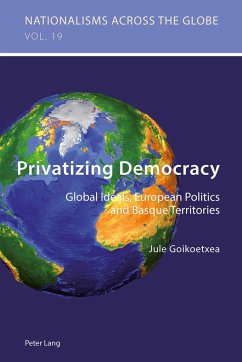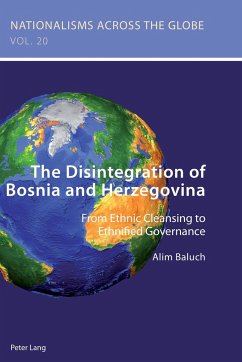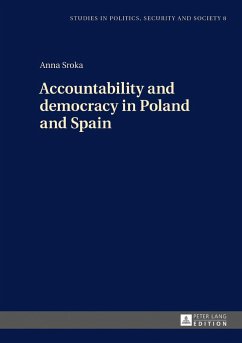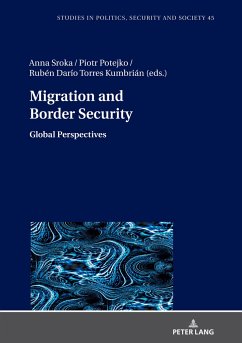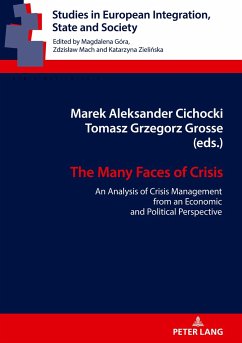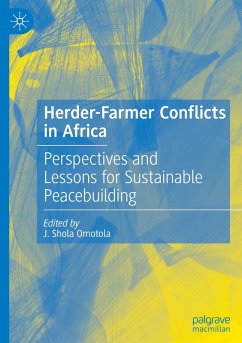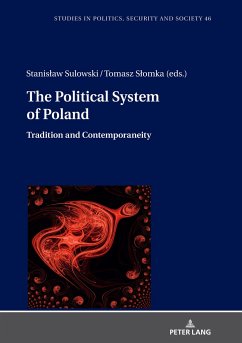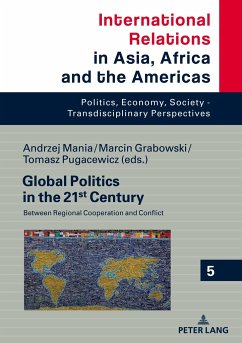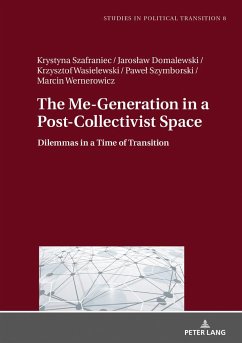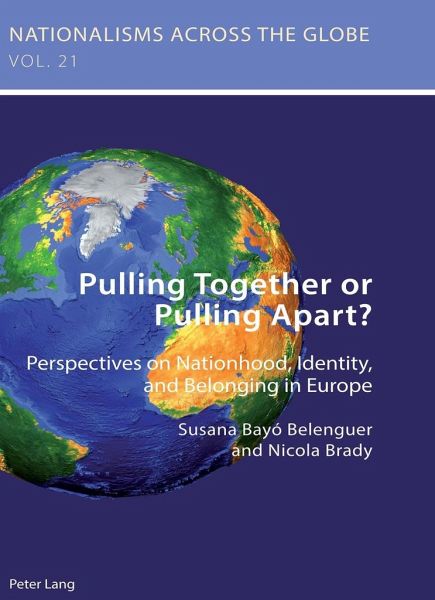
Pulling Together or Pulling Apart?
Perspectives on Nationhood, Identity, and Belonging in Europe
Herausgegeben: Kamusella, Tomasz; Jaskulowski, Krzysztof; Belenguer, Susana; Brady, Nicola
Versandkostenfrei!
Versandfertig in 6-10 Tagen
62,80 €
inkl. MwSt.

PAYBACK Punkte
0 °P sammeln!
In the aftermath of the twentieth century's raging warfare, attempts were made to create an environment in which new relationships between European nations could be built around a common identity. Yet, in the twenty-first century, identity conflicts are gaining a new intensity in parts of the continent. In the analysis of some sub-state nationalist parties, the prospect of European Union membership reduces the economic and political risks of secession. Meanwhile, to the east, any moves towards expansion of EU membership are viewed by Russia not as a peace project but as acts of aggression. Thi...
In the aftermath of the twentieth century's raging warfare, attempts were made to create an environment in which new relationships between European nations could be built around a common identity. Yet, in the twenty-first century, identity conflicts are gaining a new intensity in parts of the continent. In the analysis of some sub-state nationalist parties, the prospect of European Union membership reduces the economic and political risks of secession. Meanwhile, to the east, any moves towards expansion of EU membership are viewed by Russia not as a peace project but as acts of aggression. This volume assembles a series of comparative and single-area case studies drawn from different academic disciplines. While interrogating the history of identity conflict in the European context, an essential component of efforts to reduce such conflicts in the future, the authors bring an array of methodological approaches to analyses of the many intersecting political, cultural and economic factors that influence the formation of nationhood and identity, and the resurgence of nationalism.





